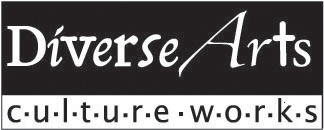By Michael Corcoran, on September 25, 2012 on the michaelcorcoran.net at www.michaelcorcoran.net/archives/2022
Villager publisher/ editor Tommy Wyatt talks about E. 11th St. in the 1950s and ’60s
From this oral history project
“And then after that you just had little drinking lounges, you know, like then we had a place called, the big dance hall, was Charlie’s Playhouse which is right there on 11th Street about two blocks from here, it was right down the street. They just tore the building down recently. And Charlie’s Playhouse had, now he had a live band five nights a week. He had an in-house band played five nights a week. And so they’d go down there, on Friday and Saturday nights are when they had the big nights over there. And of course back in those days, Friday and Saturday night Charlie’s Playhouse was filled with U.T. students. And, I’ll say it again, we had a segregated situation, and so they all could get in but you and I couldn’t sit at the same table, okay? You know, he wouldn’t let, he wouldn’t  accept mixed couples or mixed parties in there. In other words you came with your party, your party’d sit here, the Black party’d sit over there. You could both dance or whatever, but he didn’t, didn’t have mixed parties at tables and stuff like that.
accept mixed couples or mixed parties in there. In other words you came with your party, your party’d sit here, the Black party’d sit over there. You could both dance or whatever, but he didn’t, didn’t have mixed parties at tables and stuff like that.
But the thing about it was, was that because he had such a large clientele of U.T. students on Friday and Saturday nights African Americans could hardly get in the club, although it sat right in the middle of our community, you know. And so the way Mr. Gilmer, Charlie Gilmer was the name of the guy who owned and operated the club, the way Mr. Gilmer would accommodate the African Americans he had a thing on Monday nights called soul night. So that was our night [laughs] Monday night, you know. So many of the students, particularly from Huston-Tillotson and so forth, didn’t think that was quite right you know. That we couldn’t go into any club on the west side, but yet we couldn’t go to our own clubs on the east side on Friday and Saturday night. It was the biggest club in Austin, for East Austin, was Charlie’s Playhouse and we couldn’t go there on Friday and Saturday night.
Now, economically you can understand that, you see, because this man was in business, that’s the way he was making his money. I mean he was making huge amounts of money on Friday and Saturday nights. And so, since he had one of the most popular clubs in town in walking distance from the campus, I mean you know, he couldn’t afford to turn it down, you see. But at the same time it was still offensive to the students over here. So some of the students from H-T started picketing the club on Saturday night, Friday nights and Saturday nights, and eventually they, they actually got it turned around, whereas most students stopped coming, you know. ‘Cause they didn’t want to walk through picket lines, stuff like that. So he was a little upset.
Then he had another, he had a second place called, an after hours place called Ernie’s Chicken Shack. And so he would close that, and we had that, that Saturday Blue Law that all clubs had to close at 12:00 you know, and any other night, on Friday nights you could stay open ‘til one, I think. But once they closed up you know, people didn’t want to go home at that time of night. It’s too early, you know. So he’d open up Ernie’s Chicken Shack about 11:00 and he’d stay open most of the night up there. He called it Chicken Shack because he sold fried chicken. At night, you know, you’d go out to get your fried chicken basket and that same band would move from the Playhouse to the Chicken Shack and they’d keep on playing, all night, yeah.”



Social Media